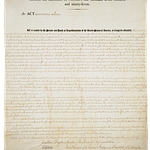Update 7/10/24: This piece has been updated to reflect the overturning of Chevron under Loper.
Chevron deference was a crucial principle in administrative law which was established after a landmark Supreme Court case, Chevron U.S.A., Inc. v. Natural Resources Defense Council, Inc., 468 U.S. 837 (1984).
In 1977, the Clean Air Act was amended by Congress to address the issue of states that had not met the air quality standards set by the Environmental Protection Agency (EPA).
These states, known as 'non-attainment' States, were required to create a permit program that would regulate major stationary sources of air pollution that were either new or modified.
During the Carter administration, the EPA defined a source as any device in a manufacturing plant that produced pollution. However, when Ronald Reagan became president, Anne M. Gorsuch, who was the head of the EPA, adopted a new definition that permitted existing plants to obtain permits for new equipment that didn't meet the standards as long as the total emissions from the plant didn't increase.
This was challenged in court by the Natural Resources Defense Council (NRDC), which argued that this regulation was unlawful. The federal court ruled in favor of the NRDC, and the company Chevron, who was affected by this decision, appealed the court's ruling.
The issue on appeal was the standard of review that should be applied by a court to a government agency’s reading of a statute that it is tasked with administering. The Supreme Court upheld the EPA’s interpretation and created a two-part analysis, known as the “Chevron two-step test:”
First, always, is the question whether Congress has directly spoken to the precise question at issue. If the intent of Congress is clear, that is the end of the matter; for the court, as well as the agency, must give effect to the unambiguously expressed intent of Congress. If, however, the court determines Congress has not directly addressed the precise question at issue, the court does not simply impose its own construction on the statute . . . Rather, if the statute is silent or ambiguous with respect to the specific issue, the question for the court is whether the agency's answer is based on a permissible construction of the statute.
— Chevron U.S.A. v. NRDC, 467 U.S. 837, 842-43 (1984).
The Chevron deference refers to the judicial principle of deferring to administrative actions in a situation where Congress has not spoken directly to the question at issue. The Supreme Court set out a legal test in the Chevron case for when a court should defer to an agency's interpretation or answer, stating that judicial deference is appropriate if the agency's response is not unreasonable and, as aforementioned, Congress has not directly spoken to the issue at hand.
The Chevron deference doctrine or just “Chevron deference” was limited to cases where a legislative delegation to an administrative agency on a particular issue is implicit rather than explicit. In such situations, a court could not substitute its own interpretation of the statute for a reasonable interpretation made by the administrative agency. When a statute is silent or unclear on a specific issue, the question for the court is whether the agency's action was based on a permissible construction of the statute.
For Chevron deference to apply, the agency interpretation in question must be issued by the agency charged with administering the statute – that’s an important part, it is not deference to the administrative state generally but deference to the proper agency. Additionally, the implicit delegation of authority to an administrative agency to interpret a statute does not extend to the agency's interpretation of its own jurisdiction under that statute. In other words, Chevron deference is not given to an agency with regards to its interpretation of whether or not it is the proper agency to be interpreting the given statute.
Ultimately, to receive Chevron deference, an agency's interpretation of an ambiguous statute had to be reasonable or rational. The court may consider the age of the administrative interpretation and congressional action or inaction in response to it when determining its reasonableness. If Congress was aware of the interpretation when it acted or refrained from action, and the interpretation is not inconsistent with the statute's clear language, it may be considered reasonable. Put another way, a given interpretation may be determined to be de facto reasonable owing to Congress’ action following that interpretation – acting or failing to act to countermand the agency interpretation.
The scope of Chevron deference had been narrowed in subsequent cases, even before being reversed in Loper Bright, and only agency interpretations reached through formal proceedings with the force of law, such as adjudications or notice-and-comment rulemaking, are eligible for Chevron deference. Interpretations contained in opinion letters, policy statements, agency manuals, or other formats that do not carry the force of law are not entitled to Chevron deference. In such cases, the court would still give persuasive weight to the agency's interpretation under the "Skidmore deference" analysis, but this treatment is slightly less deferential than the Chevron deference.
Okay, so why is this in the news? Well, as you may have heard the case Loper Bright Enterprises v. Raimondo overturned Chevron. We’re left in a bit of an in-between period now, and no one is quite sure if Skidmore controls, or Loper Bright stands for an entirely new proposition.
Regardless, expect to see a lot of administrative actions challenged in court in the coming weeks and months.













